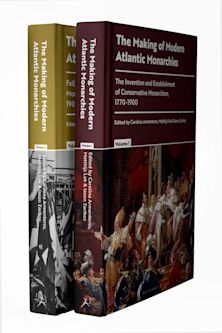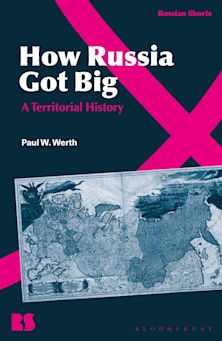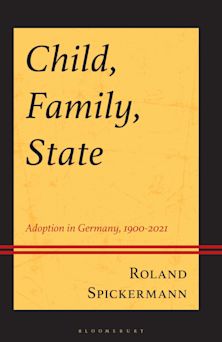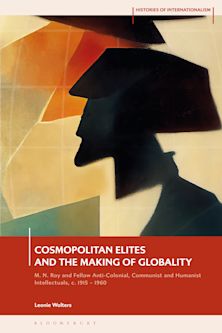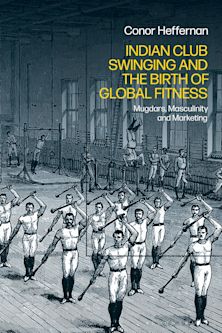- Home
- ACADEMIC
- History
- World History
- European Integration in Social and Historical Perspective
European Integration in Social and Historical Perspective
1850 to the Present
Jytte Klausen (Anthology Editor) , Louise A. Tilly (Anthology Editor) , Bernard Ebbinghaus (Contributor) , Thomas Faist (Contributor) , Michael Hanagan (Contributor) , E J. Hobsbawm (Contributor) , Christiane Lemke (Contributor) , Gary Marks (Contributor) , Leslie Page Moch (Contributor) , Gèrard Noiriel (Contributor) , Michel Offerlè (Contributor) , Martin Potucek (Contributor) , Chiara Saraceno (Contributor) , Carl Strikwerda (Contributor) , Jelle Visser (Contributor)
European Integration in Social and Historical Perspective
1850 to the Present
Jytte Klausen (Anthology Editor) , Louise A. Tilly (Anthology Editor) , Bernard Ebbinghaus (Contributor) , Thomas Faist (Contributor) , Michael Hanagan (Contributor) , E J. Hobsbawm (Contributor) , Christiane Lemke (Contributor) , Gary Marks (Contributor) , Leslie Page Moch (Contributor) , Gèrard Noiriel (Contributor) , Michel Offerlè (Contributor) , Martin Potucek (Contributor) , Chiara Saraceno (Contributor) , Carl Strikwerda (Contributor) , Jelle Visser (Contributor)
You must sign in to add this item to your wishlist. Please sign in or create an account
Description
Exploring the social dimensions of state formation and European integration, a respected interdisciplinary group of European and North American scholars takes a novel approach to the historical processes of integration. Rather than being led by EU institutions and intergovernmental policy, the contributors argue that integration is primarily influenced by non-state actors: unions, businesspeople, elites, and immigrants. Exploring the historical roots of integration, they trace contemporary integration efforts back to nineteenth-century social action in response to capitalist development. As today, it was a time when internationalism_both that of workers and of capitalists_sustained international cooperation and attempts to define universal standards for welfare and a social dimension to economic development. The reemergence of an integrated Europe as an alternative to the system of states produced by the settlements of 1918 and 1945 has provided a new opening for internationalism. The contributors view this as a positive trend, especially as a counterbalance to intensifying conflicts over growth, the distribution of wealth, welfare, and global access to markets and jobs.
Table of Contents
Chapter 2 European Integration in a Social and Historical Perspective
Chapter 3 A Third Lens: Comparing European Integration and State Building
Part 4 Historical Perspectives on Defining and Implementing Citizenship in the State Formation Process
Chapter 5 Reinterpreting the History of European Integration: Business, Labor, and Social Citizenship in Twentieth-Century Europe
Chapter 6 Citizenship and Nationality in Nineteenth-Century France
Chapter 7 Crossing Borders and Building Barriers: Migration, Citizenship, and State Building in Germany
Chapter 8 Foreign Workers in Western Europe: The "Cheaper Hands" in Historical Perspective
Part 9 The Social Process of Developing Group Representational Institutions in Nineteenth- and Twentieth-Century European States
Chapter 10 Markets, Industrial Relations, and the Law: The United Kingdom and France, 1867-1906
Chapter 11 From the Warfare State to the Welfare State: Postwar Reconstruction and National Incorporation
Chapter 12 Markets, States, and Social Citizenship in Central and Eastern Europe
Part 13 Citizenship and Group Representation at the Transnational Level
Chapter 14 European Labor and Transnational Solidarity: Challenges, Pathways, and Barriers
Chapter 15 Migration in Contemporary Europe: European Integration
Chapter 16 Gender and Europe: National Differences, Resources, and mpediments to the Construction of a Common Interest by European Women
Chapter 17 An Afterword: European Union at the End of the Century
Product details
| Published | 28 Nov 1997 |
|---|---|
| Format | Ebook (Epub & Mobi) |
| Edition | 1st |
| Extent | 356 |
| ISBN | 9780742579088 |
| Imprint | Rowman & Littlefield Publishers |
| Publisher | Bloomsbury Publishing |
About the contributors
Reviews
-
The authors provide lucid perspectives often lacking in books on the travails of the EU.
Foreign Affairs
-
An ambitious volume. Its broad substantive and temporal scope as well as its interdisciplinary foundations open up new perspectives on integration in Europe. This book represents a successful and original attempt to move beyond the narrow academic debates surrounding the integration initiatives of the past decade.
Jeffrey Anderson, Brown University
-
...the editors do provide some insightful overviews in their brief introductions to each of the main sections, and bring out the links between these diverse strands.
Stephen George, University of Sheffield, English Historical Review
-
Individual contributions to European Integration in Social and Historical Perspective are important, perceptive, and often fascinating. ...A valuable contribution to contemporary debates on the European Union and similar pursuits. ...Students of the European Union and the relationship between sociopolitical actors and political institutions, as well as comparative-historical researcherswill benefit from the numerous contributions made by European Integration in Social and Historical Perspective.
Contemporary Sociology












